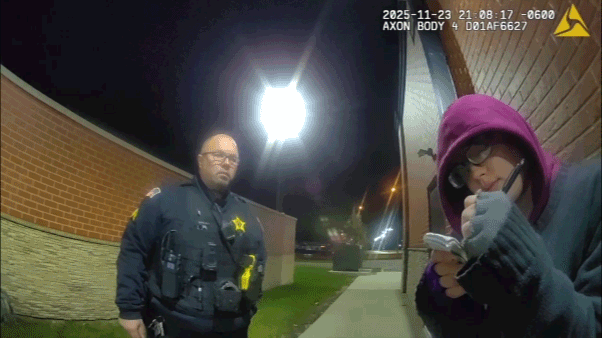A chilling case, once relegated to the realm of internet horror, has resurfaced with a startling escape. Morgan Geyser, convicted for a brutal attack orchestrated to appease the fictional Slender Man, vanished from a Wisconsin group home just months after being granted conditional release.
The horrifying events unfolded in 2014 when twelve-year-old Geyser and her accomplice, Anissa Weier, lured their classmate, Payton Leutner, into a park. There, Geyser stabbed Leutner nineteen times, while Weier encouraged the attack. Leutner, against all odds, survived, but the motive behind the violence was deeply disturbing.
Driven by a shared delusion fueled by online mythology, the girls believed sacrificing Leutner would earn them favor with Slender Man, a terrifying creation of internet folklore. They feared for their families if they failed to carry out the gruesome act, illustrating the dangerous power of distorted online realities, especially on vulnerable young minds.
Geyser was ultimately committed to a psychiatric institute after being diagnosed with schizophrenia, receiving a 40-year sentence. Weier, also convicted, was released in 2021 and lives with her father under GPS monitoring. The possibility of Geyser’s release sparked intense debate, with experts questioning her readiness for reintegration into society.
Despite concerns, a judge granted Geyser release to a group home, citing progress in her treatment and reports of symptom remission. Three doctors testified she was stable and could potentially become more dangerous if kept confined. However, prosecutors argued Geyser had previously fabricated her delusions and that the attack stemmed from abuse, not solely the influence of Slender Man.
The prosecution highlighted unsettling behavior, including Geyser’s secret reading material about organ trafficking and correspondence with a collector of murder memorabilia, even sending him a disturbing sketch. These warning signs were seemingly overlooked, leading to her release and, ultimately, her escape.
Less than a year later, Geyser removed her GPS tracker and fled. The ensuing multi-state manhunt culminated in her capture in Illinois, alongside a 43-year-old man. Bodycam footage revealed a defiant Geyser initially refusing to identify herself, admitting only that she had “done something really bad.”
She eventually confessed, writing her name on a piece of paper, and pleaded with officers to let her say goodbye to her companion, claiming he was unaware of her past. Authorities discovered a “Homeless Couples Guidebook” among her belongings, hinting at a planned life on the run.
The man, identified as Chad Mecca, was briefly detained but released after being charged with minor offenses. He claimed they met at church and had been seeing each other daily. Geyser has since agreed to return to Wisconsin, facing potential new charges and the revocation of her conditional release.
The case has reignited concerns about the long-term impact on Payton Leutner, the victim of this horrific act. Experts believe Geyser’s escape has undoubtedly re-traumatized Leutner, reminding her of the danger and the unpredictable nature of her attacker. The ordeal underscores the complexities of mental health, the dangers of online influence, and the enduring scars of unimaginable violence.






